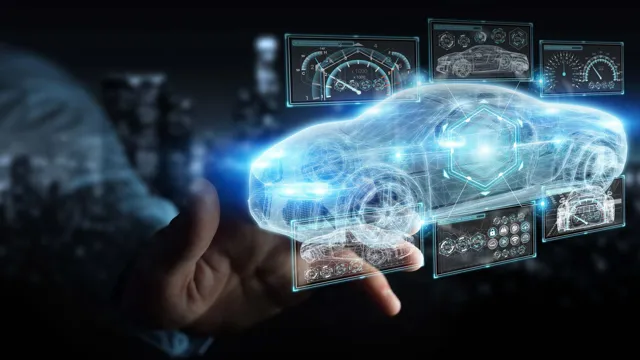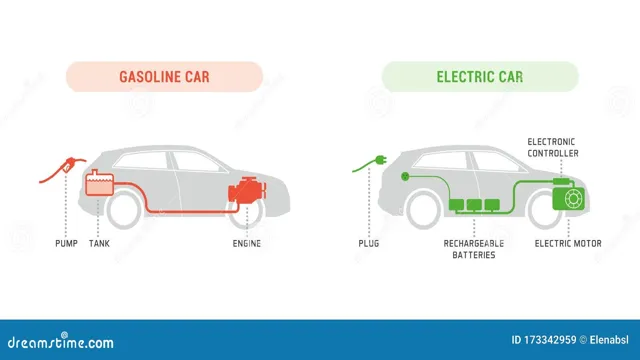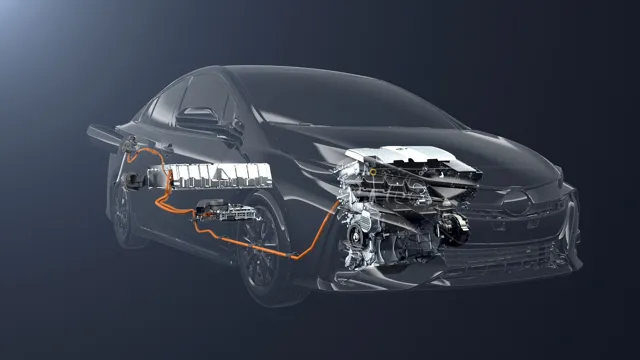Electric Cars: The Future of Sustainable Transportation
As our world becomes increasingly aware of the damage caused by traditional gas-powered cars, companies are investing heavily in electric car technology. With the rise of electric cars, there are many advantages that come with it. Unlike traditional cars that make use of internal combustion technology to power them, electric cars run on electricity stored in batteries.
This means they produce zero emissions, making them eco-friendly and significantly reducing their carbon footprint. Not only that, but they also have a lower cost of operation and maintenance. But how do these cars work, and what makes them different? Let’s dive into the world of electric car technology and explore the advancements that have made them the future of transportation.
The Basics of Electric Vehicles
“What is electric car technology?” Electric car technology is the method used to power vehicles without the use of gasoline or other fossil fuels. Instead, electric cars use electricity stored in batteries to power the vehicle. The batteries are charged by plugging the car into a charging station, which can be done at home or at public charging stations.
This technology is becoming more popular due to its environmentally friendly aspects and potential cost savings. Electric car technology is also continuing to improve, with advancements in battery technology and increased availability of charging infrastructure making them more practical for everyday use. As more companies invest in the technology, electric cars are becoming a more viable option for anyone looking for a sustainable and efficient way to get around.
What is an electric car
Electric cars have become increasingly popular in recent years as people search for more sustainable and eco-friendly modes of transportation. An electric car is just like a traditional car, but instead of running on gasoline, it runs on electricity stored in its batteries. Charging an electric car is as simple as plugging it into an electrical outlet or a specialized charging station.
While some people worry about the range of electric cars, modern models can typically go between 100-300 miles on a full charge. And, with advancements in battery technology, the range is only increasing. Additionally, electric cars are often less expensive to maintain and can save drivers money in the long run on fuel costs.
While there may be some upfront expenses, such as buying and installing a charging station, investing in an electric car can have a positive impact on both the environment and your wallet.

How do electric cars work
Electric cars, also known as electric vehicles (EVs), are powered by one or more electric motors, instead of an internal combustion engine. These motors rely on electricity from rechargeable batteries to turn the wheels and move the vehicle forward. When drivers want to go faster, they simply accelerate, causing the electric motor to draw more energy from the battery, which in turn produces more power.
The battery pack is typically located beneath the car’s floor, which helps to lower the center of gravity and improve handling. Charging an EV is relatively straightforward – drivers can plug their vehicle into a charging point at home, work, or at a public charging station. The charging time depends on the size of the battery and the speed of the charger.
While some fast-charging stations can provide up to 80 percent of a full battery in around 30 minutes, normal charging can take several hours. Once fully charged, electric cars can travel varying distances before they need to be charged again, depending on the battery size and driving conditions. In summary, electric cars use rechargeable batteries to power their electric motors, providing a more efficient, eco-friendly, and cost-effective driving solution compared to traditional gasoline-powered vehicles.
The Benefits of Electric Vehicles
Electric car technology is a game-changer for the automotive industry and society as a whole. These vehicles use electric motors powered by rechargeable batteries to provide clean, emission-free transportation that takes motorists farther than ever before. This technology eliminates the need for gasoline, and it is proving to be more cost-effective for drivers in the long run.
Moreover, electric vehicles are typically more efficient, requiring less maintenance and providing a much smoother ride. Not only are electric vehicles better for the environment, but they are also helping to reduce the world’s dependence on fossil fuels. The benefits of electric car technology are clear, and as this technology continues to evolve, we will see even more advancements that improve our lives and the planet we call home.
Reduced Emissions
Reduced Emissions If you’re considering switching to an electric vehicle, one of the biggest benefits is the reduction in emissions. Unlike traditional gas-powered cars, electric vehicles produce zero emissions while driving, which means they don’t release harmful pollutants into the air. This is a huge advantage for the environment and for our health.
In fact, studies have shown that electric cars emit 50% less greenhouse gases compared to gas-powered cars. This means that by driving an electric vehicle, you’re doing your part to reduce the impact of climate change and improve air quality. Not only that, but you can feel good about making a positive impact on the world around you.
Switching to an electric vehicle is just one way we can all contribute to a cleaner, healthier planet.
Lower Fuel Costs
Lower Fuel Costs Electric vehicles offer a range of benefits that make them a more attractive option compared to traditional gasoline-fueled cars. One key advantage is the lower cost of fuel. Electric vehicles use electricity to power their motors, which generally costs less than gasoline.
In fact, studies have shown that electric vehicles can save drivers up to $1,000 a year in fuel costs. Additionally, as more renewable energy sources are developed and utilized, the cost of electricity is expected to decrease even further. With an electric vehicle, you not only save money at the pump, but you also contribute to a cleaner environment by reducing your carbon footprint.
So, why not consider making the switch to an electric vehicle? You’ll save money and do your part to help protect the planet.
Less Maintenance
Electric vehicles are becoming increasingly popular due to their numerous advantages over traditional gasoline-powered cars. One of the most significant benefits of electric cars is their low maintenance requirements. Unlike their counterparts, electric vehicles have fewer moving parts, which means that there are fewer things that can break down or require repair.
Additionally, electric cars don’t require oil changes or other maintenance tasks that gas vehicles need. This not only saves you time and money, but it also helps reduce the impact on the environment, as there will be less pollution from oil changes and other maintenance procedures. So, if you want a car that requires less maintenance and is better for the planet, then an electric vehicle could be a great option for you.
The Challenges of Electric Vehicles
Electric car technology has come a long way since it was first introduced. However, there are still numerous challenges that hinder its adoption and widespread use. One of the most notable challenges is range anxiety, which refers to the worry that an electric car driver may run out of battery power before reaching their destination.
Although modern electric vehicles offer a longer range, it is still not comparable to the range offered by traditional gasoline cars. Another challenge is the availability of charging infrastructure. Electric car drivers face the inconvenience of searching for a charging station or waiting for an available spot to charge their car.
Additionally, the high cost of electric vehicles is a significant barrier to entry, making it difficult for many people to afford them. Nevertheless, electric car technology has many benefits, including lower operating costs, fewer emissions, and greater fuel efficiency. As advancements continue, it’s possible that these challenges may be overcome, making electric vehicles an even more attractive alternative to traditional gasoline vehicles.
Range Anxiety
Electric vehicles have made significant strides in the market over the last decade. However, one of the significant challenges that deter potential buyers from making a switch from conventional gas-powered vehicles is range anxiety. Range anxiety is a feeling of uncertainty or fear that the electric car will not have enough power to get to a destination without requiring a recharge.
This anxiety is due mainly to the limited range of electric vehicles’ batteries and the limited availability of charging stations outside of metropolitan areas. The fear and uncertainty attached to range anxiety can be compared to being stranded in the middle of a desert without any gas stations within sight, and the fuel gauge is running low. Automakers are aware of this challenge and have developed solutions to alleviate it.
These solutions include the development of high-capacity batteries and innovative systems to monitor battery usage and predict range limits accurately. Also, the increasing number of charging stations across the country has made it much easier to charge electric cars on long journeys.
Charging Infrastructure
Electric vehicles are gaining popularity, but the challenges of infrastructure remain a significant roadblock to widespread adoption. One of the most prominent issues for many EV owners is access to charging stations. While traditional gas stations are readily available, and one can easily find them on almost every corner, charging stations are still relatively scarce.
This can lead to range anxiety, the fear of running out of power and being stranded on the road without access to a charging point. The limited range and charging infrastructure can often be a dealbreaker for potential EV owners, preventing them from making the switch to electric. However, there are some recent developments in charging technology, including faster and more efficient chargers and the expansion of charging station networks, that aim to address this issue.
If the charging infrastructure continues to improve, it could finally pave the way for electric vehicles to become the norm.
The Future of Electric Cars
Electric car technology is rapidly evolving and the future of transportation looks promising. With the advancement of battery technology, electric cars are becoming more efficient and cost-effective. In fact, some electric cars can now travel over 400 miles on a single charge.
In addition, the development of wireless charging technology is making it easier for drivers to charge their cars more conveniently. Furthermore, the integration of artificial intelligence is improving the user experience and making electric cars safer and more comfortable to drive. The market for electric cars is also expanding as more automakers invest in electric technology.
Tesla, for instance, is a leading manufacturer of electric cars and has revolutionized the industry with its unique design and innovative features. The future of electric cars looks promising as technologies continue to advance and more people embrace this eco-friendly mode of transportation.
Conclusion
Electric car technology is the perfect definition of innovation and sustainability. With a focus on reducing emissions and promoting renewable energy, electric cars have become the driving force behind a cleaner and brighter future. They are powered by smart technology, which integrates batteries, electric motors, and regenerative braking systems to maximize energy efficiency.
The result is a driving experience that is smooth, quiet, and economically savvy. So if you’re looking to upgrade your ride, consider investing in the exciting and eco-friendly world of electric cars. Your grandchildren will thank you for it!”
FAQs
What is electric car technology?
Electric car technology refers to the use of electric motors and battery packs to power vehicles instead of internal combustion engines that run on gasoline or diesel fuel.
How does electric car technology work?
Electric cars work by using an electric motor and battery pack to power the wheels. The battery pack stores energy from the grid or from regenerative braking, which is then used to power the motor.
What are the benefits of electric car technology?
The benefits of electric car technology include reduced dependence on fossil fuels, lower emissions of greenhouse gases and pollutants, and lower operating costs due to the lower cost of electricity compared to gasoline or diesel fuel.
What are the challenges facing the adoption of electric car technology?
The challenges facing the adoption of electric car technology include the high cost of batteries, limited range compared to gasoline-powered vehicles, and the need for better charging infrastructure to support widespread adoption.






